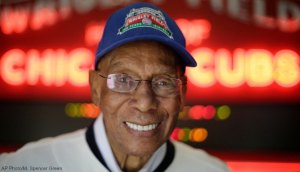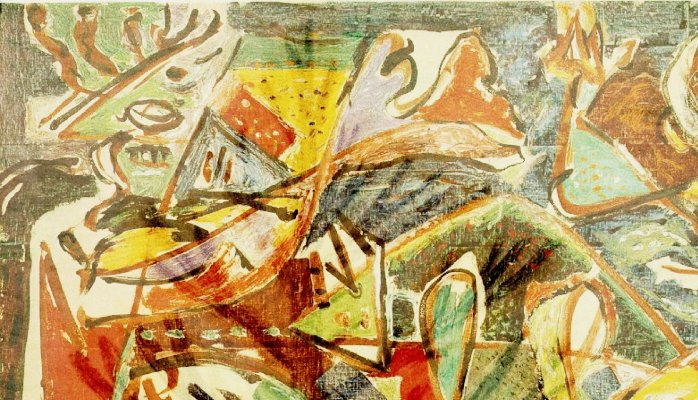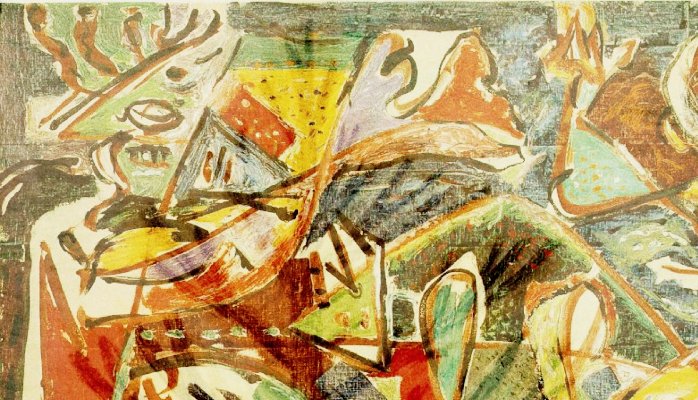“A hero is an ordinary individual who finds the strength to persevere and endure in spite of overwhelming obstacles.“-Christopher Reeve, Actor-“Superman”
“Every day is a new opportunity. You can build on yesterday’s success or put its failures behind and start over again. That’s the way life is, with a new game every day, and that’s the way baseball is.”-Bob Feller, Hall of Fame Pitcher
In the complex world, we need many things in order to function. Our professional lives are no different. We use machines to help keep track of information and most importantly-time. They also help us do many other things, such as create schedules, communicate with each other and even perform menial tasks.
However, there is one thing that no form of technology can do for anyone. It is perhaps the only thing that we as humans, have left in our own personal and professional arsenals-the power to inspire. This is a very human story, which is being brought to you by benefactor of medical technology. But, it is very human nevertheless.
Growing up, like many kids, I was always fascinated with comic books and superheroes. I would always marvel at the level of ingenuity and creativity that it took, into developing a fully functioning, super-being that could transcend the forces of darkness, to save the day.
In real life, I think that heroes are important too, whether they are entertainers, athletes, politicians or public figures, heroes serve a purpose in our society. They help give people hope, and provide examples for success. Some heroes are comfortable with sharing the story of their success with others. This helps ordinary people see the world, in real terms, through their will to succeed, and provides an understanding, of how they developed their respective talents.
Growing up, my first heroes were always athletes. I was indoctrinated into being a Cubs fan, the minute that I was born (so were both of my sons). My mother had many friends who actually worked for the Cubs front office, and throughout my childhood, I was always blessed with all things that were Cub-player pictures, autographs and even uniforms, which were rare in those days.
In my case, being a Cubs fan was not simply a novelty, or a passionate allegiance, it became a force that helped me focus on literally- staying alive. As a child, I was born with a rare neurological condition. At the age of six months, doctors had operated to install a pump in my head, to prevent fluid from building up, at that time, the doctors told my parents that my prognosis was bleak.
However, years went by and because of my mother’s faith in God, and unrelenting doting over me, I grew up relatively normal, like all of the rest of the kids in my neighborhood. I went to school and played ball. Of course, people around me were very conscious and made sure that I was safe. This prohibited me from participating in organized contact sports, like football and basketball, but I made due with my neighborhood buddies. We were all into playing baseball and football. We played pick-up games in the neighborhood or at school. Of course, these buddies were also Cubs fans as well.
When I was eight, I experienced a growth spurt and needed a surgery to correct this. The previous corrective intervention was failing. As a result, I missed months of school, and had to learn how to walk all over again. However, while operating, the doctors discovered a malignant tumor, which appeared to be the nature of my problem in the first place. Unfortunately, because of my age, there was nothing that they could do until I was older, which they eventually did, when I was twelve.
Of course, spending a lot of time in bed and rehabbing, particularly over the summer, I watched almost every Cubs game that year. The doctors and nurses saw that I loved baseball, and worked my rehabilitation schedule around Cubs games. I suppose they saw the spark of excitement for my love of the game. The hospital staff wisely used this as motivation, in order to get me to participate in treatment and eventually, get me on my feet again.
However, at that time, none of that seemed to matter, because my mind was always focused on watching the baseball games. This did help distract me from my pain. It also helped me to focus on something productive and forward thinking. However, I remember experiencing a feeling of sadness, which I had never experienced before. The doctors had said that this was to be expected, but it sure was a bummer, nevertheless.
Seeing this, my mother was at my bedside the whole time, offering love and concern that only a mother can give. One day, she was convinced by one of her friends to take a break. My aunt took her to a work party. The work party was held at Wrigley Field. The people who were there, were Cubs front office employees, management and current and former players.
As a kid, my mother knew that I idolized Ron Santo, the eventual Cubs Hall of Fame third baseman. She along with my aunt, who knew Santo, actually approached him. My aunt had explained that I was sick, in the hospital and was a huge fan. She also asked Santo if he could visit me. Santo stated that he had some prior commitments, but was kind enough to sign an autograph (which I still have-to this day).
A few days had passed, and from what I understand, another Cub, who was actually going to be inducted into Cooperstown, in a mere few weeks, found out that I was in the hospital. He inquired about me. Without any fanfare, news cameras or reporters, Ernie Banks showed up at my side (after work hours no less!). He brought with him a signed, autographed photo, and even chose to stay and chat for a few.
Earlier this year, Sports Illustrated published an issue entitled “Where Are They Now?” On the cover, was a picture of Ernie Banks. In the lead article, written by Rich Cohen, Ernie discusses his life in baseball. Cohen discussed his observations, from interviews of people who were knew Ernie. Of course, Ernie’s reputation was stellar. It was everything that I remembered.
“Baseball is ninety percent mental and the other half is physical”.–Yogi Berra
As for Cohen’s article, when I read it, it was if I were transported back into time, lying in a hospital bed, and talking with Ernie. Everything that he shared with Rich Cohen, he shared with me. Heck, I was just eight years old. And now, he was sharing it with the world. (Silly me, I had no idea that I was sitting on an exclusive all these years!)
What Ernie Banks taught me that fateful day, was most definitely, what educators would refer to as “an educable moment”. However, I prefer the term that recovering alcoholics use, by viewing this as “a moment of clarity”-and it certainly was for me!
I realized then that heroes are real people, who do real things, and make sacrifices, to help other people. I was a naive, sick kid, who needed some guidance. It took a man, who voluntarily decided to take a detour, on road to Cooperstown, to teach me this lesson. It might have been painfully obvious to anyone else.
It also made me realize, that anyone can be a hero. In that moment, I realized that everyone that was there to help me was as much, or more so, a hero to me than Ernie. However, it took inspiration from Ernie’s celebrity, and the warmness of his heart and actions, which brought this fact to life, in my young mind.
The point is, that even that thirty-seven years later, it was Ernie’s visit that gave me the strength and courage to persevere. He didn’t have to do what he did, he chose to, without recognition, and sought nothing in return. He would be in Cooperstown two weeks later. By being inspired by Ernie, I learned to appreciate life, in a more well-rounded way. Suddenly, the sky became a little brighter, the summer breeze, a bit more refreshing.
“Baseball is Life”.-Anonymous
From everything that I have ever read about oppressed people, throughout history, this is a road well-travelled. This is why Hebrew and Black slaves chanted and prayed together-they needed to transcend their current predicament, to summon strength from a greater source, and give themselves hope for a better tomorrow.
Personally, I have always marveled at cultures and people of faith, who use their belief system for a greater good. Growing older, this is what made me appreciate Ernie Banks even more. Although, Ernie was a successful man, he worked extraordinarily hard for his success. He was frequently discriminated against, by the very establishment that made him a perennial All-Star and eventual, Hall of Famer. If this sounds weird, it is.
Nevertheless, it is very true. According to Ernie, the only thing that he could do to keep his job, was to keep his mouth shut, and let his play do the talking. If only some of today’s athletes carried themselves with such poise and grace. This behavior is truly a rarity in today’s world of celebrity, regardless of the sport.
Ernie had an enduring legacy as a player and as a person. Ernie was always thought of as being a positive force in the lives, of people that he knew. My aunts confirmed this, as have many of his former teammates, as well as droves of people that knew him. Last year, he was awarded the Congressional Medal of Honor, for his character and service to others (presented to him by President Obama-a loyal White Sox fan). Unfortunately, on January 23, 2015, Ernie Banks passed away.
However, he is, and always will be, a hero to me, and legions of Cubs Fans. After all, it is his optimistic spirit, which made him “Mr. Cub”. He has long since replaced Ron Santo as my favorite Cubs player. The thing that makes heroes, like Ernie Banks, so great is this- they may pass on, but their legacy goes on forever.
This means that the spirit by which the honed their craft continues, endlessly, through the annals of time. It was said that no matter what the scoreboard said, or what baseball prognosticators said about his team, he always had a positive retort or even a catchy limerick (“The Cubs will shine, shine, and shine in 1979.”).
Looking back through the years, I know that Ernie’s spirit and positive message has helped me touch the lives of others. This is the true value of all heroes. It is the particular nature of their heroism, which transcends time and is passed on for generations to come. I now know this for certain: I am here not only because of Ernie Banks, my family and friends, but on the shoulders of many other good people as well.
What we do as ordinary people, captains of industry or members of the medical or any of the helping professions, should evoke a spirit of heroism, which creates a climate of hope, which can help facilitate change for the better. It’s more than just having will, it’s having faith, through example, that can transcend a tragedy, uplift a spirit, and maybe save a life. This is what makes us all human. This is what gives us all, the great potential to be heroes, in this great baseball game called “Life”.
As Ernie would say, “Let’s play two!” I’ll second that.


